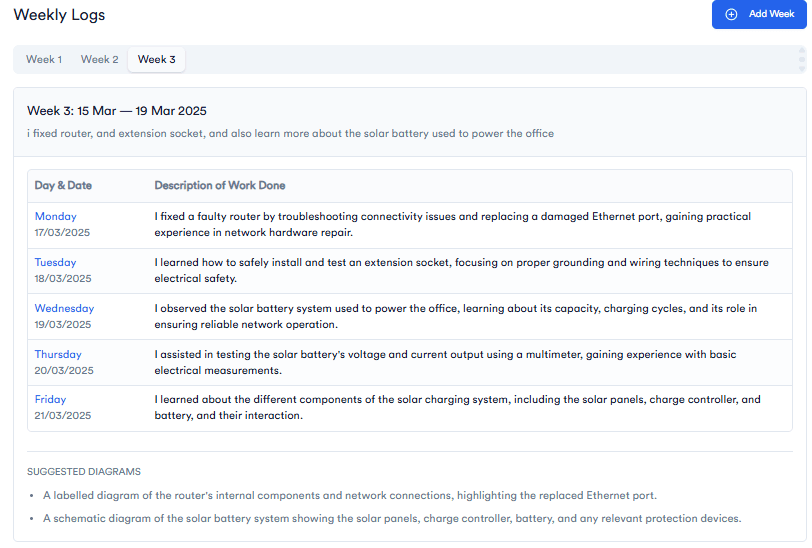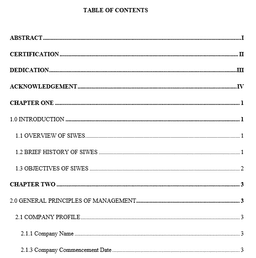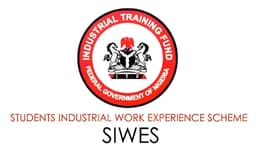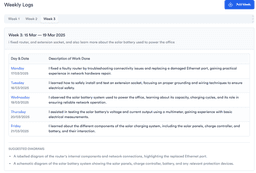Challenges Students Face During SIWES and Solutions
SIWES is meant to prepare Nigerian students for real work life, but many face problems like poor supervision, no pay, and lack of orientation. Here are the main challenges — and practical solutions.


If you’ve ever taken part in SIWES (Students’ Industrial Work Experience Scheme), you’ll know it’s not always as smooth as it looks on paper. The programme is supposed to help students move from classroom theory to real workplace practice — but in reality, many students face challenges that make the experience stressful or even discouraging.
The good news? Most of these problems can be fixed with the right approach from schools, companies, and students themselves. Let’s break down the biggest challenges students face during SIWES and how they can be solved.
⚡ SIWES Tools for Students 🔥
Use our free AI-powered tools to make SIWES easier.
SIWES Report Generator — Generate a formatted SIWES report instantly.
https://report.monoed.africa
SIWES Logbook Generator — Create weekly logbook entries in seconds.
https://logbook.monoed.africa
SIWES / IT Placement Finder — Find verified SIWES & IT placement opportunities.
https://siwesfinder.monoed.africa
📙 Final Year Project Tools 🔥
FYP Report Generator — Generate full project chapters and citations.
https://fyp.monoed.africa
Project Topic Generator — Get supervisor-ready project topics instantly.
https://topics.monoed.africa
1. Lack of Orientation
A lot of students start SIWES without even knowing what it’s really about. Some don’t know how to get their logbooks, apply for placements, or even fill their forms. On the other hand, some companies also don’t fully understand what’s expected of them. The result? Confusion everywhere.
👉 Solution: Schools need to organise proper orientation sessions before students begin SIWES. Students should be taught how to apply for placements, document their work, and write reports. Employers also need to be briefed on how to handle interns.
2. Poor Supervision from Schools
Many times, once students are sent out for SIWES, schools forget about them. Some supervisors don’t bother visiting, so students are left on their own. In fact, some students don’t even attend SIWES but still get signed logbooks.
👉 Solution: Departments should assign supervisors who actually visit and monitor students. Proper follow-up keeps students serious and ensures they gain real experience.
3. Doing Irrelevant Tasks Instead of Learning
One of the most frustrating parts of SIWES is being treated like free labour. Instead of learning new skills, some students spend weeks doing errands, cleaning, or making photocopies.
👉 Solution: Companies should create a clear training plan for interns. Students should be involved in real tasks related to their field, not just side chores.
4. Financial Struggles and Transport Costs
Most SIWES students don’t get paid, yet they spend a lot of money on transport every day. Some companies even charge students money to take them in. For many, this becomes a heavy financial burden.
👉 Solution: Firms should provide at least a small allowance or cover transport costs. Schools and government agencies can also partner with organisations to support students financially.
5. SIWES Is Too Short
With only 3–6 months for most programmes, students hardly scratch the surface of workplace training before it’s time to leave.
👉 Solution: Extending SIWES or including shorter industrial attachments during semesters can give students deeper and more valuable experience.
6. Few Placement Opportunities
The number of companies accepting SIWES students is very limited. This pushes thousands of students to cities like Lagos, Port Harcourt, and Abuja, creating competition and overcrowding.
👉 Solution: The SIWES board should partner with more companies across all states, not just in big cities, to give students easier access to placements.
7. Lack of Commitment from Students
Not all problems come from schools and companies. Some students themselves treat SIWES like holiday time — spending more energy on parties and travelling instead of learning.
👉 Solution: Students need to take SIWES seriously. Show up early, stay focused, ask questions, and learn as much as possible. At the end of the day, the skills gained will benefit you, not the company.
8. Struggles with Logbooks and Reports
Many students don’t know how to properly fill logbooks or write their final reports. This often affects their grades even if they worked hard.
👉 Solution: Schools should teach students how to keep proper records before they go out. Simple templates or digital tools (like logbook generators) can also save students a lot of stress.
💡 Save Time with the SIWES Logbook & Report Generator
Instead of stressing over daily entries, you can use the MonoEd SIWES Logbook & Report Generator. Here’s how it works:
- Write a short weekly summary of your tasks (e.g., “This week I troubleshooted network issues, installed Windows software, and configured printers.”).
- The tool automatically expands it into polished Mon–Fri daily entries, each worded differently but still based on your real tasks.
- Copy into your logbook — accurate, professional, and consistent.
When your training ends, the Report Generator creates a solid draft of your final report using your company details and training summary.
✅ Saves hours of writing
✅ Entries sound professional and impress supervisors
✅ No more bulk-filling at the last minute
👉 Try it free at logbook.monoed.africa | report.monoed.africa

9. Workplace Bias and Safety Issues
Some students face discrimination based on gender, background, or course of study. Others are put in unsafe environments without proper training.
👉 Solution: Employers should create a safe, fair, and inclusive environment for all interns. Students should also have channels to report harassment or unsafe practices.
10. Missed Networking Opportunities
One of the biggest benefits of SIWES is meeting professionals who can help your career later. Unfortunately, many students finish their training without building any useful connections.
👉 Solution: Employers should encourage students to attend meetings, workshops, and mentorship sessions. Students themselves should take initiative — ask questions, introduce yourself, and connect with professionals (even on LinkedIn).
Conclusion
SIWES is a golden opportunity, but it comes with its fair share of challenges, from poor supervision to financial struggles and lack of practical exposure. The good thing is that these issues can be solved if schools prepare students better, companies take interns seriously, and students themselves stay committed.
Handled the right way, SIWES can truly do what it was designed to do: prepare Nigerian students for the world of work.
👉 Pro Tip: Don’t let logbooks and reports stress you out. Tools like the MonoEd SIWES Logbook & Report Generator make documentation fast, professional, and stress-free.
FAQs
Q1: What is the biggest challenge students face during SIWES?
Most students struggle with lack of supervision, financial issues, and being given irrelevant tasks instead of real training.
Q2: Do students get paid during SIWES?
Not always. Some companies provide stipends or transport allowances, but many don’t pay at all.
Q3: How can I prepare for SIWES?
Start by securing your placement early, attending any orientation, and learning how to fill your logbook and reports properly.
Q4: How long does SIWES last?
Usually between 3 and 6 months, although some programmes can extend up to a year.
Q5: How can SIWES be improved in Nigeria?
By providing proper orientation, offering financial support, creating more placements, and ensuring supervisors monitor students regularly.


